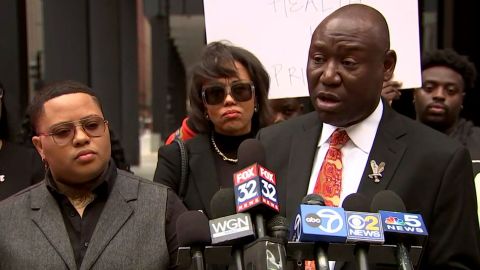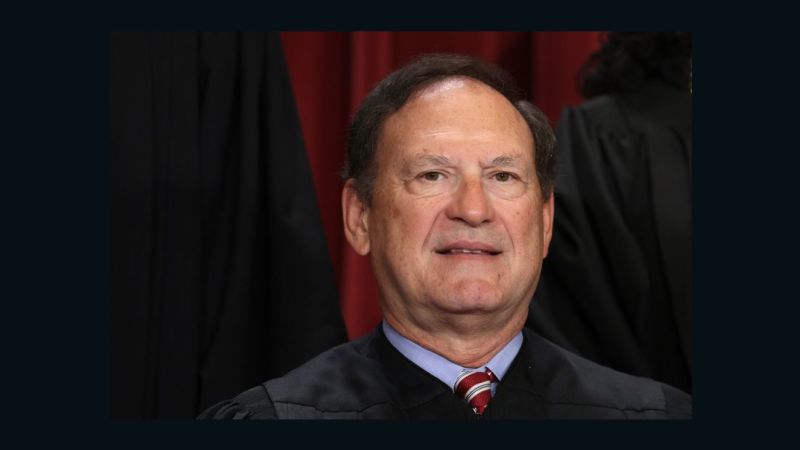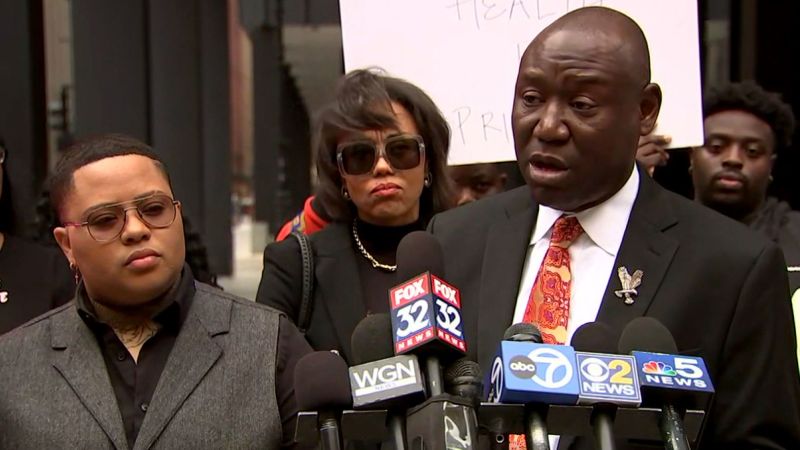CNN
—
Cosmetics company L’Oréal, along with multiple other parties, is being sued over claims that its chemical hair straightening products put women at an increased risk of uterine cancer.
Civil rights attorney Ben Crump, counsel Diandra “Fu” Debrosse Zimmermann and others filed a lawsuit Friday in Illinois on behalf of 32-year-old Missouri resident Jenny Mitchell, claiming that Mitchell’s uterine cancer “was directly and proximately caused by her regular and prolonged exposure to phthalates and other endocrine disrupting chemicals found in Defendants’ hair care products.”
CNN has contacted L’Oréal, Namaste Laboratories LLC, Dabur International Ltd. and Godrej Consumer Products, parent company of the Just For Me brand, for comment.
Debrosse Zimmermann told CNN on Monday that the lawsuit marks a “watershed moment” for women of color who have used chemical hair-straightening products, such as relaxers.
At a news conference Monday, Mitchell said that she recalls getting hair relaxers around third grade, when she was about 8 years old.
Mitchell was diagnosed with uterine cancer on August 10, 2018, according to the lawsuit, and underwent a full hysterectomy at Boone Hospital Center in Missouri on September 24, 2018.
“At that time, at the age of 28, my dreams of becoming a mother were gone,” she said. In the lawsuit, she claims to have no family history of cancer or uterine cancer.

“As most young African-American girls, chemical relaxers, chemical straighteners were introduced to us at a young age,” Mitchell said. “Society has made it a norm to look a certain way, in order to feel a certain way. And I am the first voice of many voices to come that will stand, stand up to these companies, and say, ‘No more.’”
Mitchell continued using chemical hair-straightening products from around 2000 until March 2022, and she is seeking compensation in excess of $75,000, according to the lawsuit.
Two other individual cases have been filed – in California and New York – against cosmetic companies, including L’Oreal, claiming a connection between chemical hair-straightening products and cancer diagnoses, Debrosse Zimmermann said.
“We imagine that we will continue representing additional women in filing cases, as will other firms, and more and more women will come forward,” she said.
Mitchell’s lawsuit was filed just days after the publication of a study in the Journal of the National Cancer Institute, which estimates that among women who frequently use hair-straightening chemical products, the risk of developing uterine cancer by age 70 is around 4%. In women who did not use hair-straightening chemical products in the previous 12 months, the study estimates the risk of developing uterine cancer by age 70 to be 1.6%.
Black women tend to use these chemical hair-straightening products more frequently than White women, the researchers noted.
The study data showed that the association between hair straightening products and uterine cancer cases was most pronounced for Black women, who made up only 7.4% of the study participants, but 59.9% of those who reported ever using straighteners.
Several factors probably play a role in the frequent use of hair straightening products: Eurocentric standards of beauty and social pressures placed on Black and Latina women in workplace settings related to microaggressions and the threat of discrimination, along with desired versatility in changing hairstyles and self-expression.
“Black women have long been the victims of dangerous products specifically marketed to them,” Crump said in a news release. “Black hair has been and always will be beautiful, but Black women have been told they have to use these products to meet society’s standards. We will likely discover that Ms. Mitchell’s tragic case is one of countless cases in which companies aggressively misled black women to increase their profits.”







More News
Opinion | The Ghost of the 1968 Antiwar Movement Has Returned
Chicago Museum Says Investigators Have No Evidence Art Was Looted
Donald M. Payne Jr., Five-Term New Jersey Representative, Dies at 65